Our final addition to Fokker Park, historic home of the Fokker aircraft, are two award-winning logistics centres created to make the very best of cradle to cradle innovation. The site’s flagship buildings, 7/8 flank the entrance – two vast monoliths designed to be built to suit by tenants, with adaptable interiors characterised by natural light, ventilation and planting, even on the workfloor. They are also a world-first in logistics – entirely ready for disassembly – buildings created with the future, and their own end in mind.
Fokker 7|8
Logistics

From the very beginning, it was clear that we wanted the redevelopment of the park to be sustainable; to minimise the impact of demolition, we devised an approach that allowed us to reuse 97% of the materials that were released on site. During the 13 years that we have been developing Fokker Logistics Park, technology and knowledge have improved. This has allowed us to experiment with new solutions, materials and techniques along the way. The whole park has evolved like a laboratory where, step by step, we have seized every opportunity to improve sustainability and impact.
In 2015, halfway through the development of Fokker Logistics Park, we won the National Steel Award for Sustainability, in recognition of the innovations we applied in steel construction.
How this differs from a completely bolted steel structure, is the fact that the whole concept has been consistently implemented throughout the building. Even the roof and façade are attached to the steel structures with screws instead of a set mounting system so that disassembly at a later date is possible. All the parties involved deserve special praise, including the construction site staff who were instructed daily with special storyboards. The project is a fair winner in which the client may be mentioned as an entrepreneur of circular building in a market segment in which every cent counts.
Comments by the jury, National Steel Award for Sustainability.

Fokker 7/8 uses Cradle to Cradle certified materials wherever possible. We achieved this without increasing the cost of standard design. We also reinstated some of the site’s original natural features like waterways, natural banks and trees, offering green space for staff breaks, and reintroducing some previously lost wildlife including foxes, swans and meerkats. Vitally, we built for the future – everything can be disassembled, from foot boards to concrete floors, and comes with a materials passport, so it’s traceable and ready for a new life. While it’s in use, Fokker 7/8 creates its own energy supply, with 3,000sqm of panels producing 480KWP of solar energy.

We worked closely with suppliers on sustainable innovations such as CO2 purifying asphalt, achieved by applying olivine and 100% recycled biological asphalt. That approach, and its capacity to generate more than enough energy to power itself, makes this the shape of the future for logistics.
Xander van Hoof, Development manager, Delta
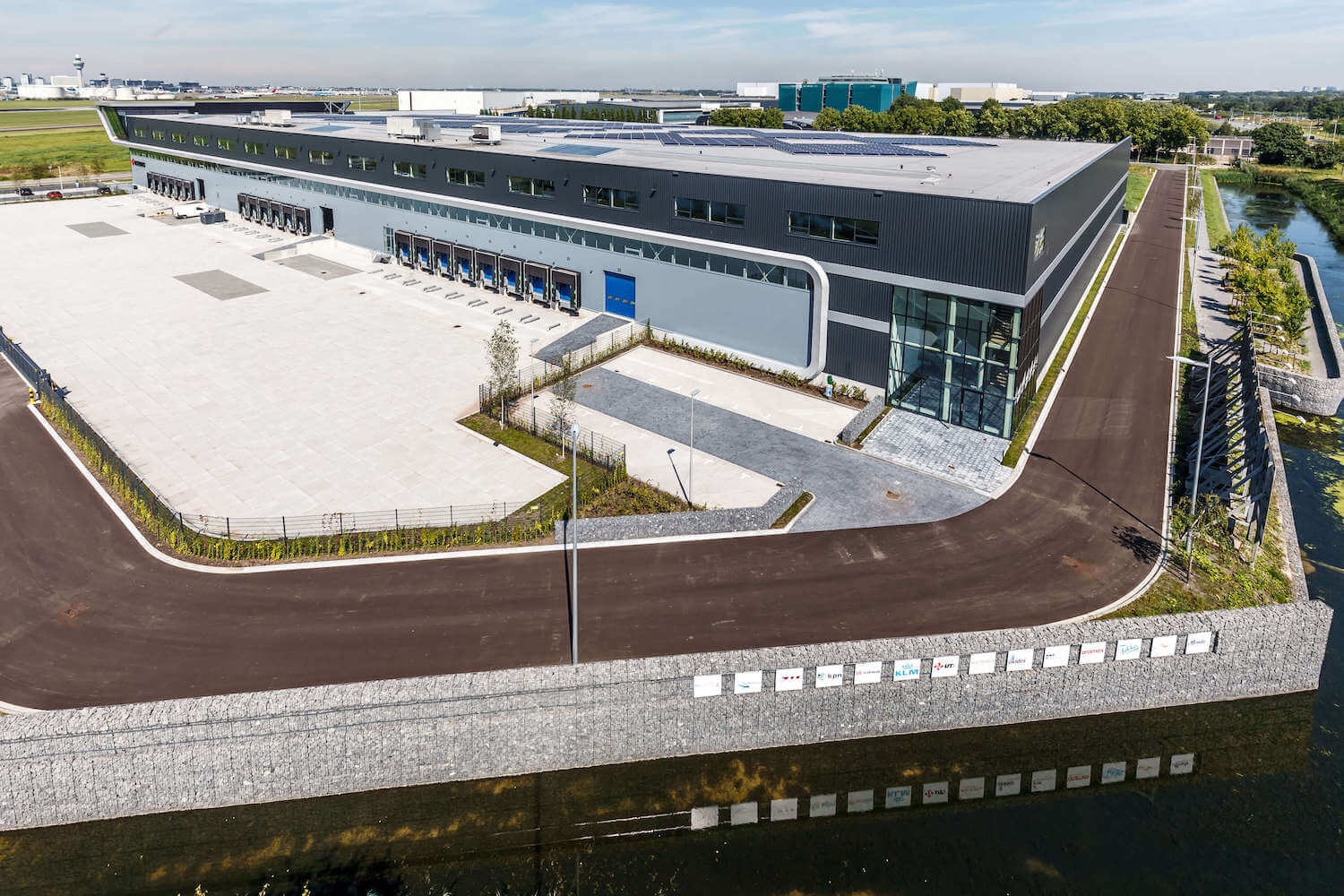
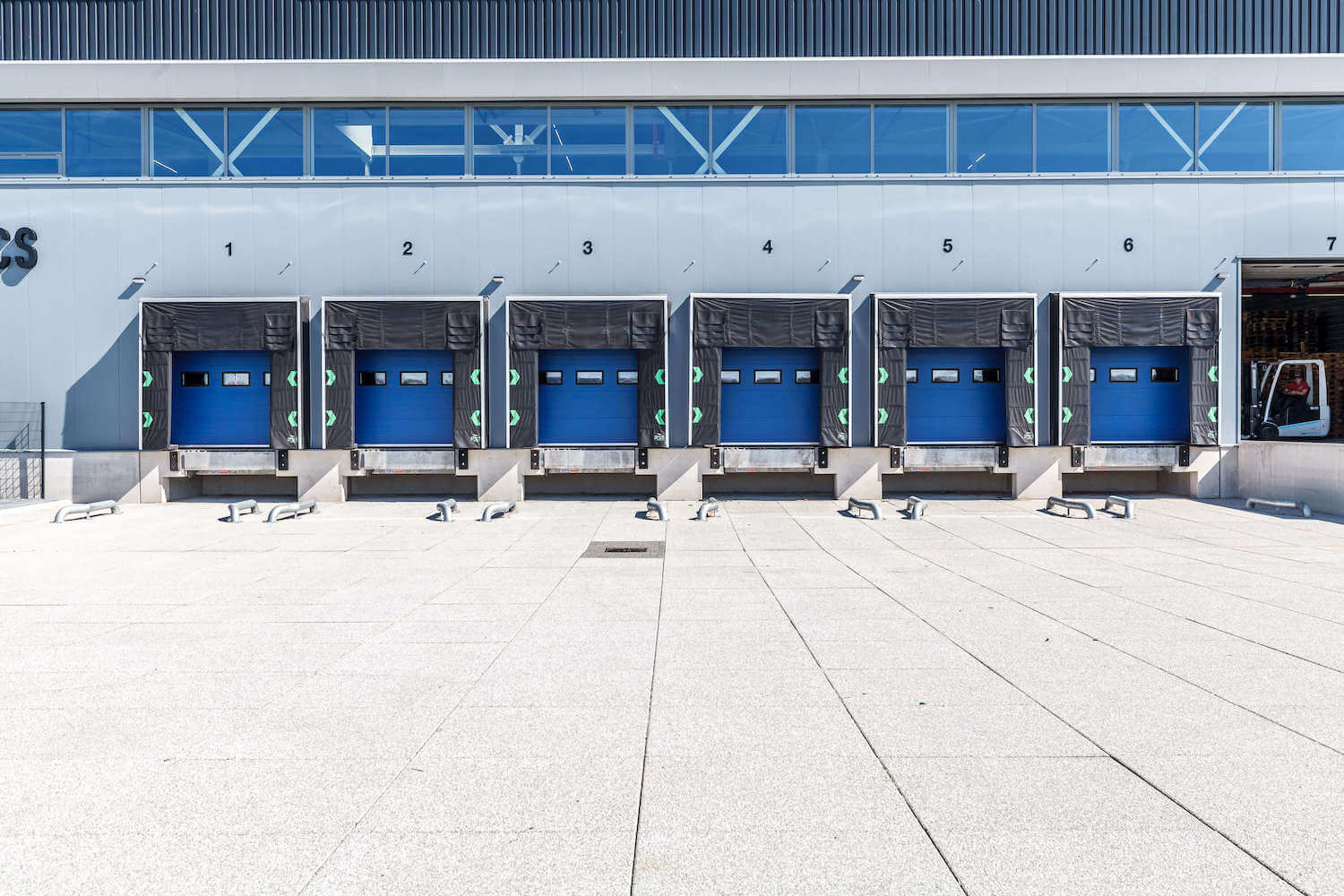
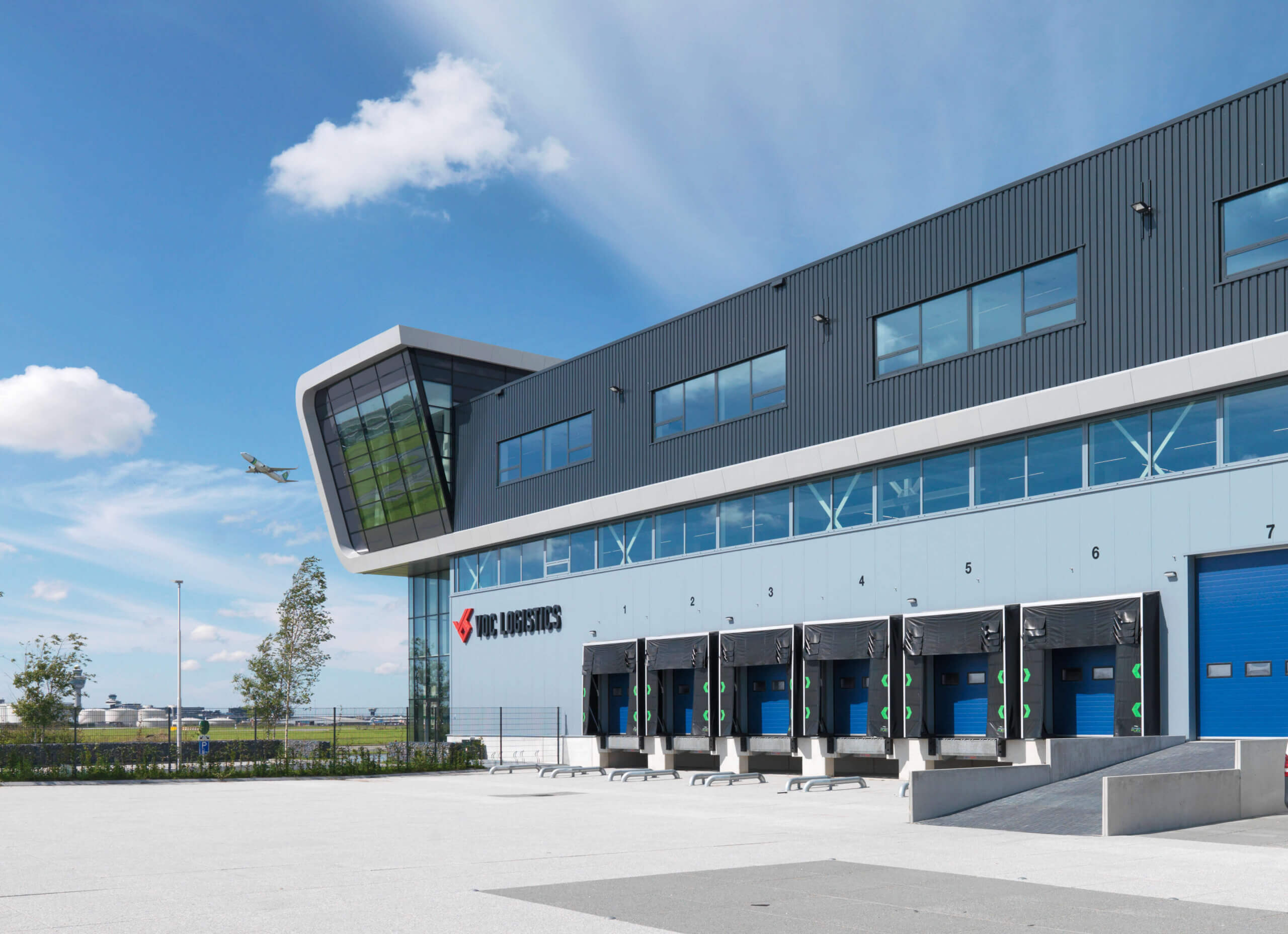
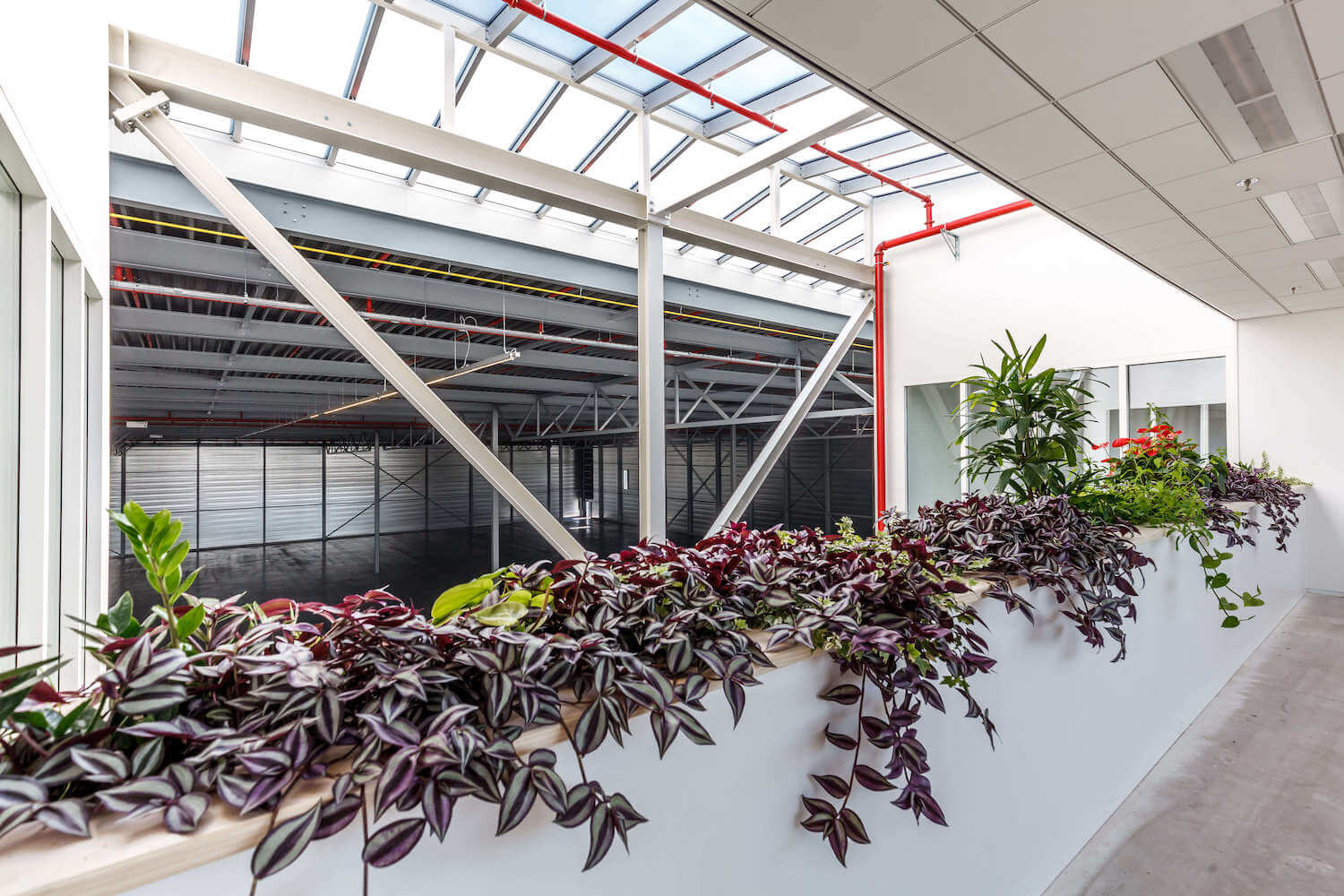
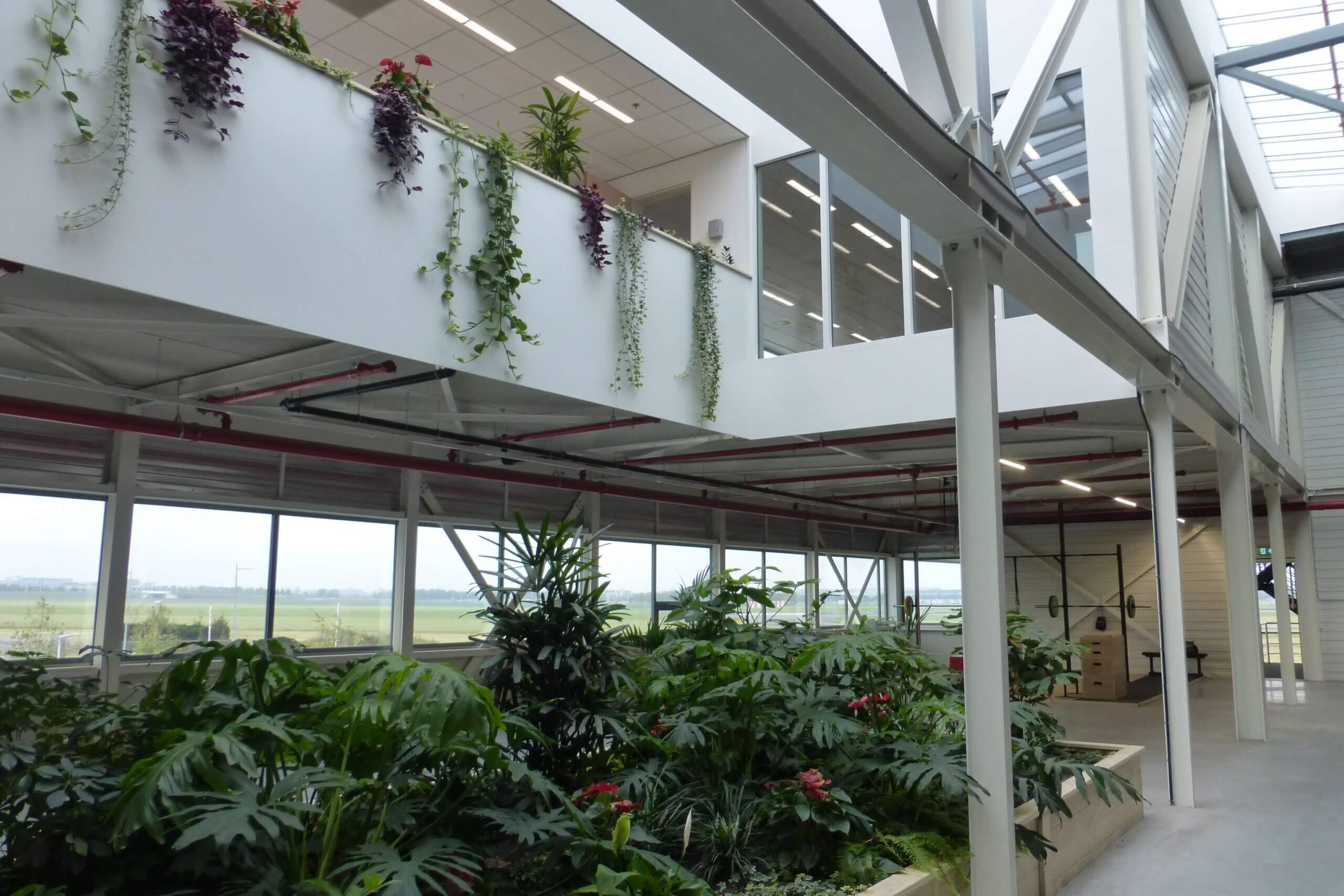

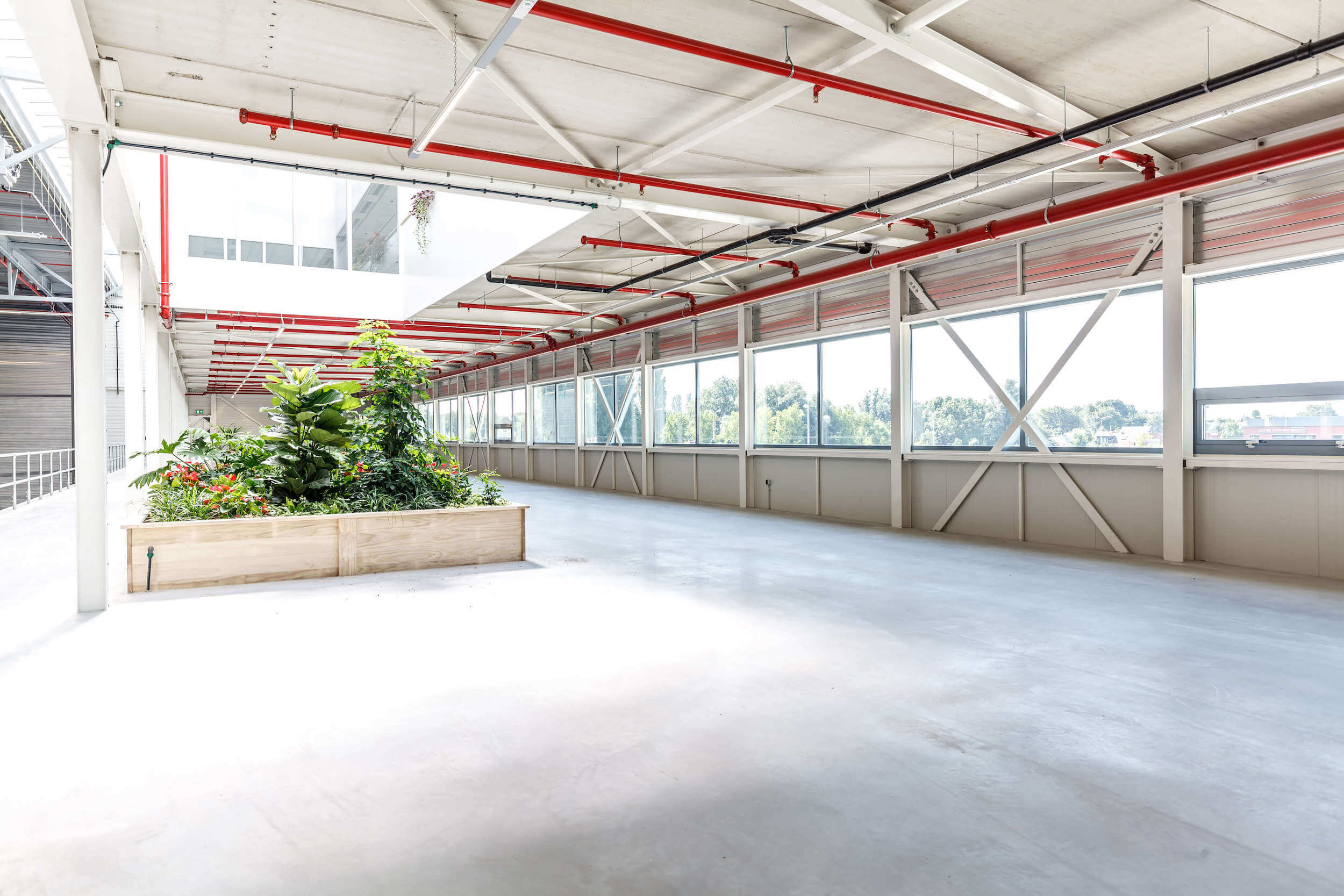
€0
Additional costs for using C2C materials.
3,000 m²
Roof-mounted solar panels
480 kWp
Energy produced – enough to power other buildings on site

Specifications
| Location: | Amsterdam Schiphol Airport, The Netherlands |
| Project / Status: | 38,000 m² / in use |
| Architects: | Various |
| Development partners: | VolkerWessels, Reggeborgh Group |
| Awards: | National Steel-prize for sustainability |
Sustainable Development Goals




Fokker 7|8 contais the following materials and features that apply to Delta's Next Generation Logistics concept:
Human-Centered
non-toxic C2C certified materials throughout, outdoor communal green space with waterways and planting to absorb fine dust and CO2 and attract biodiverse wildlife, biodegradable material used for drainage and geotextiles, close to transport links.
Circular design
award-winning design for disassembly, CO2 purifying asphalt created using olivine and 100% recycled biological asphalt, use of granulate instead of concrete rubble, use of (precast) concrete with at least 20% recycled additives, C2C gold certified non-PVC sewage, grey water system with biodegradation capacity.
Tech-enabled
all-electric with charging points for cars; shares excess energy generated by solar panels with nearby buildings.


